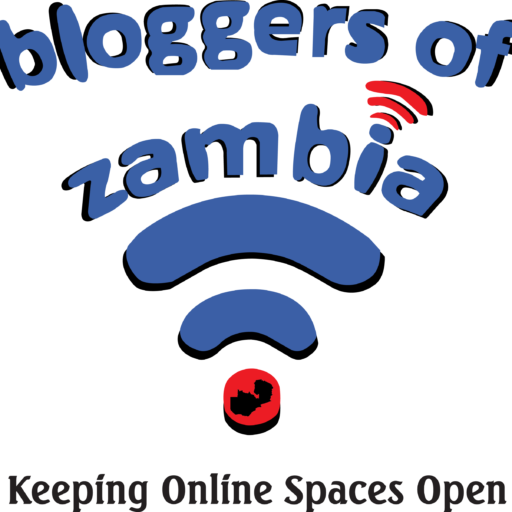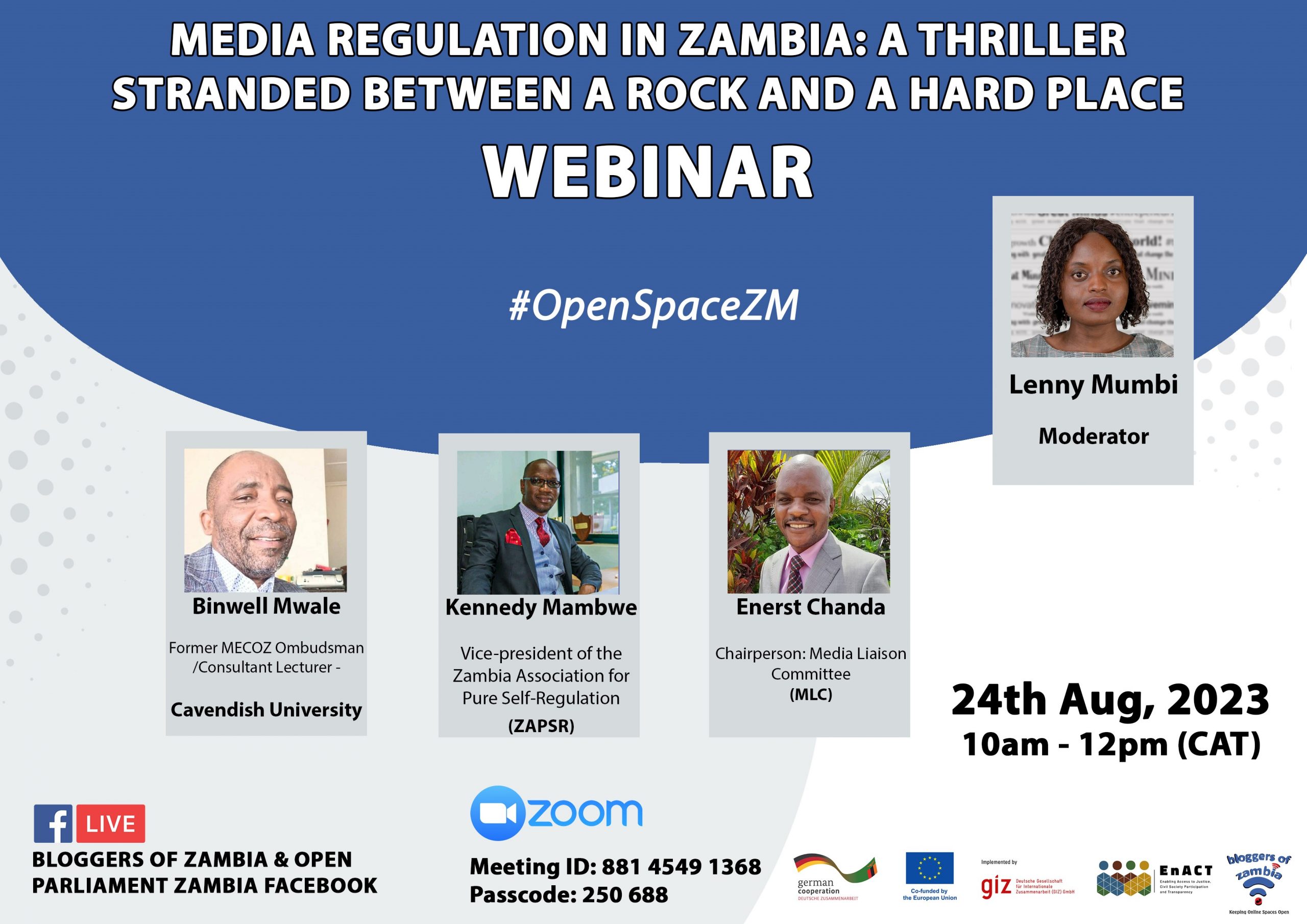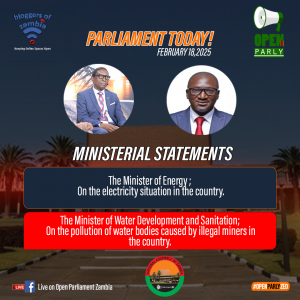On August 24, 2023, 75 participants representing diverse backgrounds, including students of media and communication studies at the University of Zambia, lecturers, lawyers, journalists, media owners, and civil society organizations, convened for a webinar titled “Media Regulation in Zambia: A Thriller Stuck Between a Hard Rock and a Hard Place.” The virtual event was organized by Bloggers of Zambia with support from the German International Cooperation in Zambia (GIZ). The webinar was reared by seasoned media regulation and journalism experts who brought to light the history, context, and current situation of media regulation in Zambia. This critical event was a contribution to the ongoing conversation on the complexities surrounding media regulation in Zambia, as the country grapples with the delicate balance between freedom of expression and the need for responsible journalism. Media regulation in Zambia has long been a contentious issue. Balancing the freedom of the press, enshrined in the country’s constitution, with the responsibility to ensure ethical and unbiased reporting poses a significant challenge. Recent developments have raised concerns about the potential curtailment of press freedom, leading to increased scrutiny and debate.
The webinar kicked off with an opening discussion on the background, history, and context of media regulation in Zambia coming from the Media Ethics Council in Zambia (MECOZ) once led by a former ombudsman who was one of the panelists, Mr. Binwell Mwale. The second panelist was Mr. Ernest Chanda a seasoned journalist with 20 years of experience in journalism and media and the current chairperson of the Media Liaison Committee (MLC). The two panelists gave a breakdown of the two processes currently being pursued as well as the existence of media regulation in Zambia; voluntary self-regulation which has no need of an Act, and on the other hand, statutory self-regulation which has to be enacted through Parliament.
The third type is statutory regulation sitting by the Independent Broadcast Authority (UBA). The panelists walked the participants through the history of the Media Council of Zambia (MECOZ), which was founded by the Press Association of Zambia and the Media Institute of Southern Africa with the assistance of international funders in 2002 and debuted in 2004, sadly failed to function as a regulatory body in Zambia. MECOZ did not last as it was battling inadequate resources and a lack of commitment from most members like the defunct Post Newspaper due to its voluntary nature. The Zambia Media Ethics Council (ZAMEC) succeeded MECOZ and it too, did not see the light at the end of the tunnel. ZAMEC failed due to a lack of commitment and resources as well. Even pledges of K10,000.00 from the five biggest media institutions at that time did not come through to save ZAMEC. In 2019, journalists agreed to have a statute self-regulation which is a hybrid of voluntary and statutory self-regulation which also has come with painstaking factions.
Mr. Ernest Chanda spoke about coexistence being an important facet of development for media regulation in Zambia. Mr. Chanda advised the participants to be vigilant and alert to political, economic, and social changes. He also emphasized the need for the two groups advocating for statutory and voluntary regulation to have a co-purpose so as to overcome the current challenges of media regulation in Zambia.
Meanwhile, Mr. Binwell Mwale encouraged the participants to look at the interests of the profession rather than individual interests.
“We need to have a process that is consultative in nature and the majority of the interest should be to protect the profession. The process should be inclusive and there should be a consensus. The Media Ethics Council failed due to its voluntary nature,” he stated.
Mr. Mwale stated that MECOZ failed because its process was not fully inclusive and it gave options for people to either be part of the council or not. There is a need for everyone or at least the majority to support a common cause. Participants also highlighted the following key points during the webinar;
- The webinar participants highlighted the importance of media organizations adhering to established codes of ethics and professional conduct to maintain public trust.
- The webinar delved into the existing legal framework governing media regulation in Zambia and explored potential reforms to enhance press freedom while maintaining journalistic responsibility. Participants also stressed the importance of unity among media organizations, civil society, and legal experts to advocate for a fair and balanced media regulatory environment.
- The participants recognized that educating the public about media literacy and responsible consumption of news is crucial in addressing the challenges of misinformation and disinformation.
- Participants emphasized the need for ongoing advocacy efforts and open dialogues between media stakeholders and government representatives to find common ground and ensure that any regulatory changes are fair and transparent.
The event concluded with a commitment to continued dialogue, advocacy, and collaboration among media professionals, legal experts, civil society organizations, and the government to navigate the challenging terrain of media regulation in Zambia.



